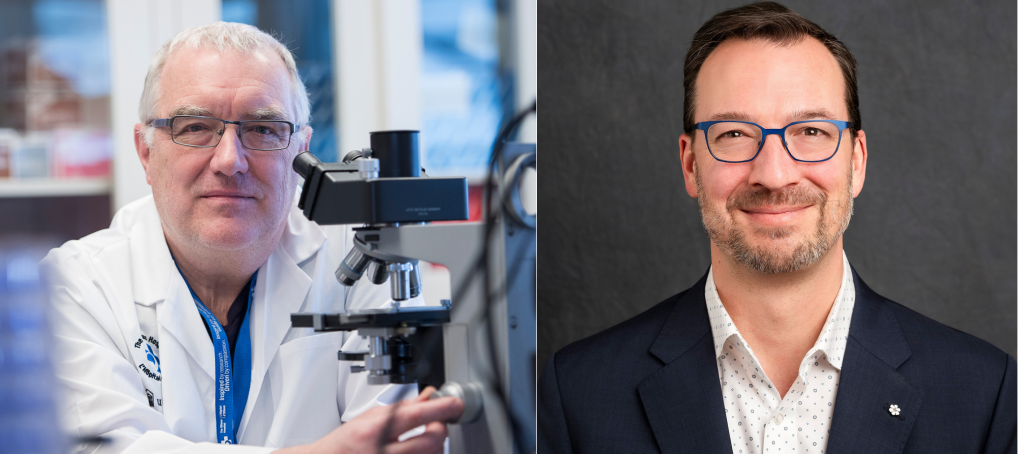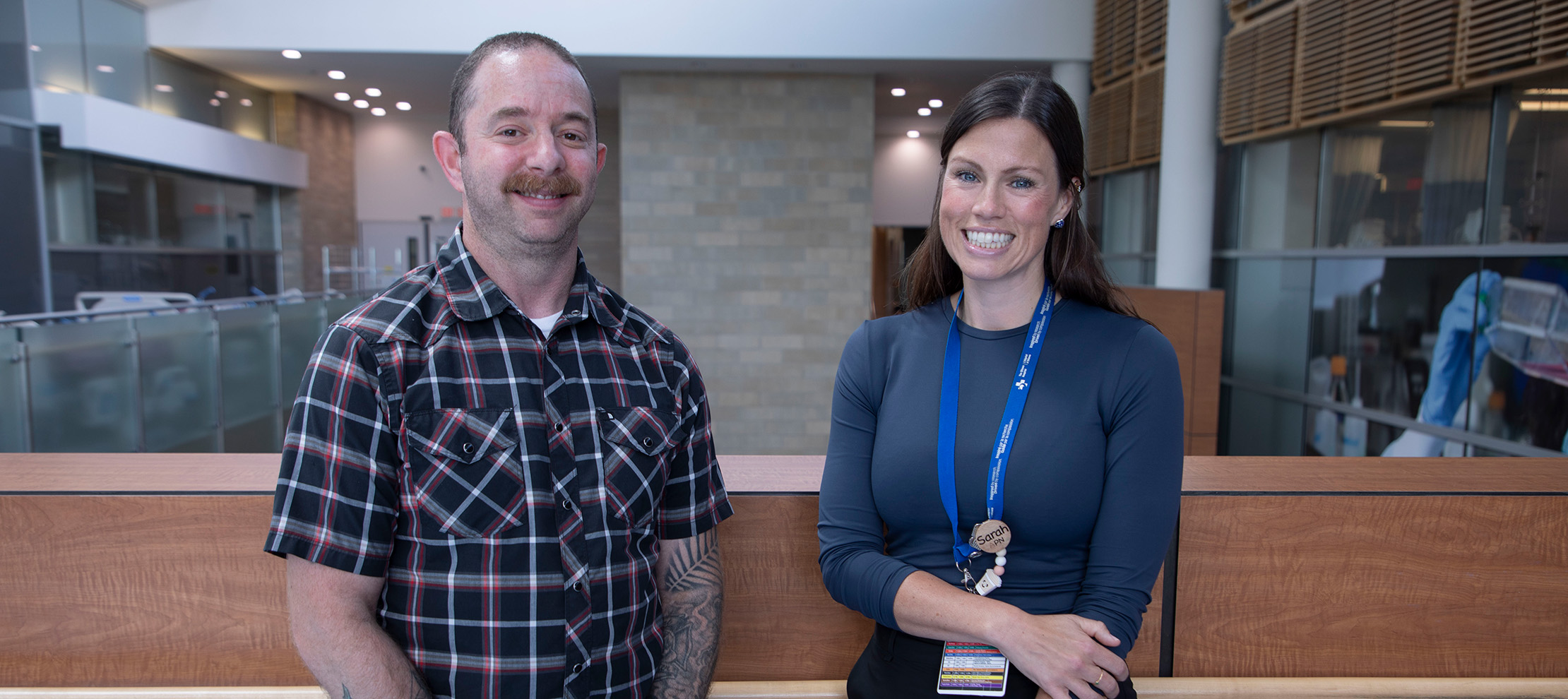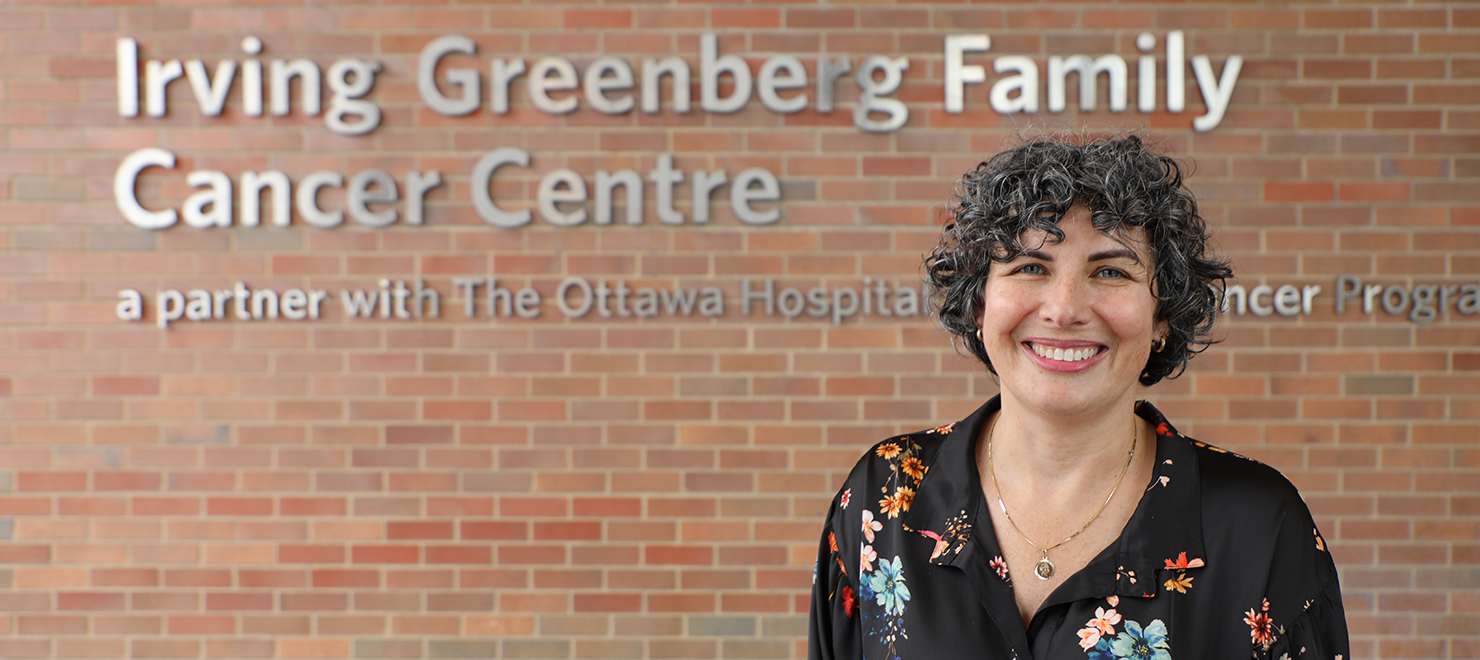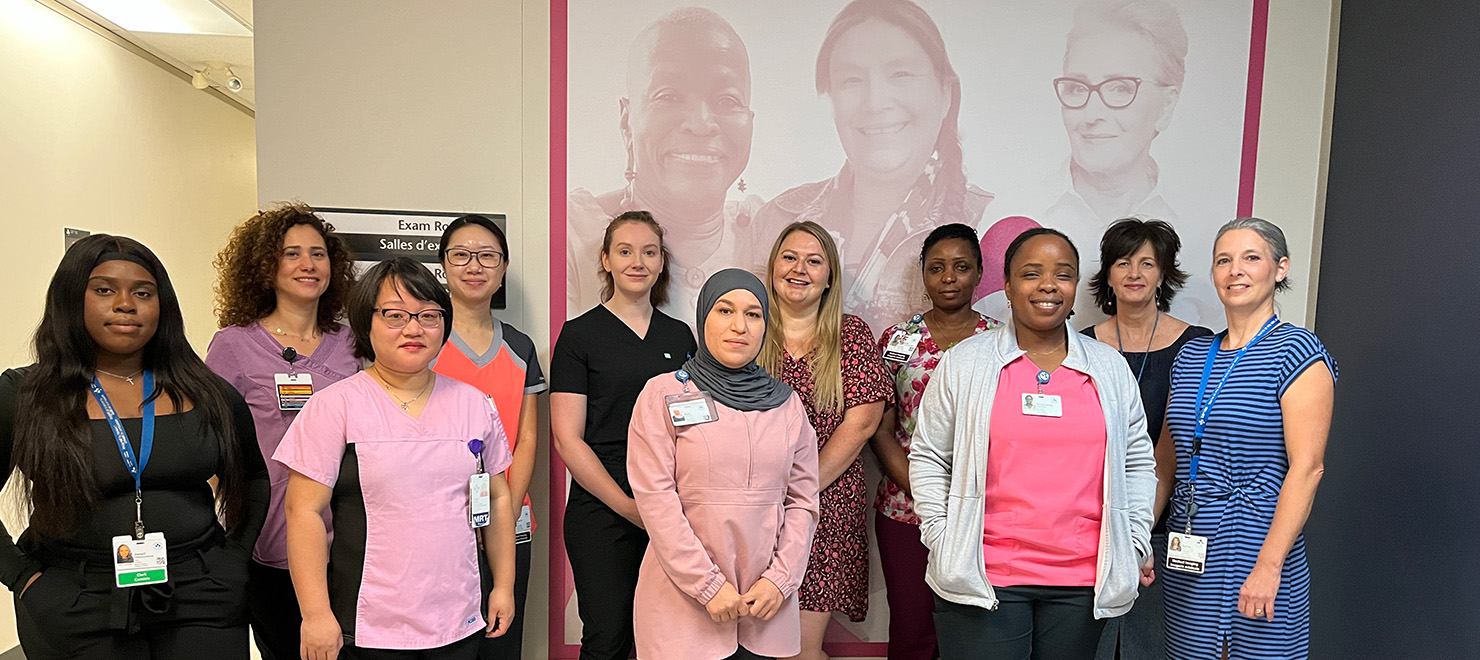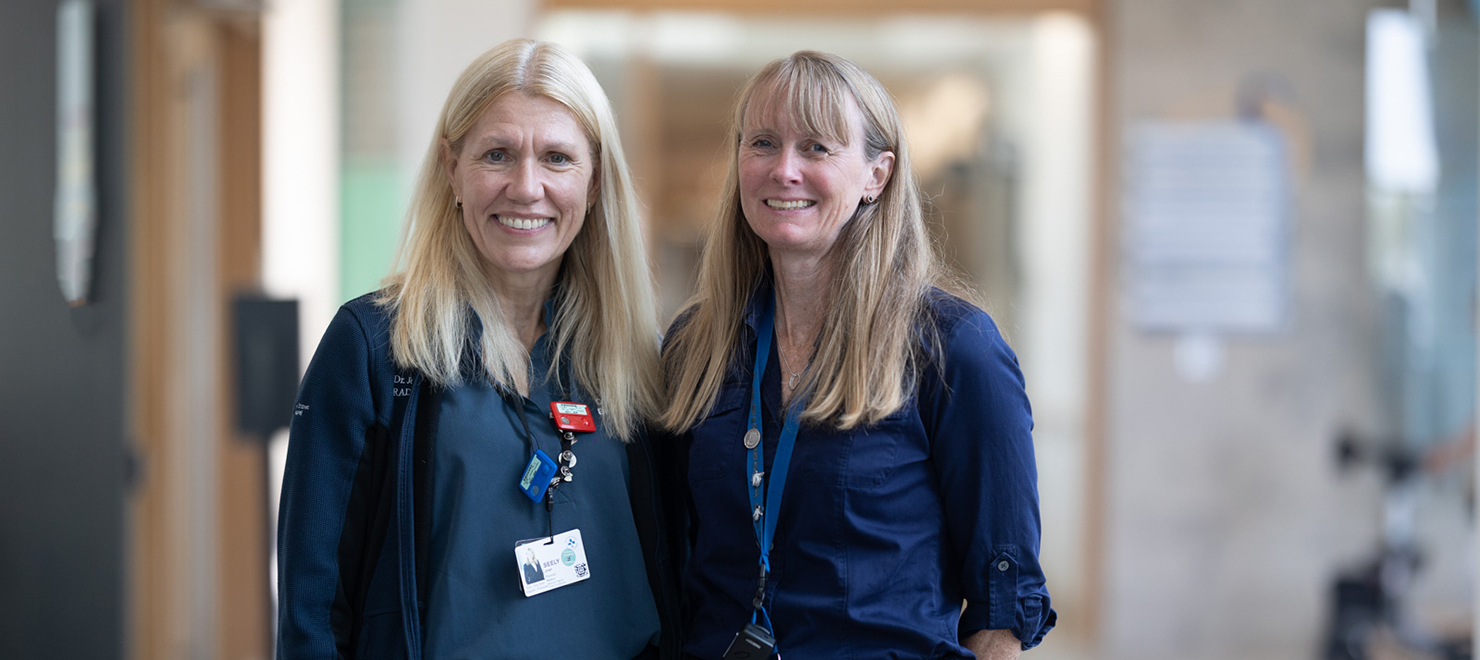
Economics professor Dr. David Gray took part in a clinical trial to see whether an immunotherapy drug could keep his high-risk skin cancer from coming back. Four years later, he’s still cancer-free.
Dr. David Gray’s cancer was hiding in plain sight.
“It was a blemish on my cheek that just wouldn’t heal,” said the University of Ottawa economics professor and father of two. “My dermatologist didn’t like it, so he had it tested.”
When his dermatologist removed the pea-sized tumour from Dr. Gray’s face, further tests revealed that it was Stage 3c melanoma. He was at high risk of the cancer spreading to other parts of his body.
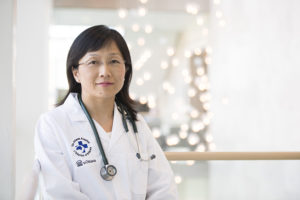
“He’s remained cancer-free, and the hope is that he is cured from the disease.” -Dr. Xinni Song
“During the initial visit, the surgeon told me that the five-year survival was below 40 percent,” he said.
Faced with those odds, he decided to join a clinical trial that compared an immunotherapy drug called ipilimumab to interferon, the currently publicly-funded treatment used to keep melanoma from returning.
Ipilimumab helps the immune system attack cancer cells anywhere in the body. However, it can have serious side effects. After Dr. Gray’s fourth treatment, his hormonal (endocrine) system went into crisis, and he was hospitalized for four days. He continues to take hormone replacement medication today
These kinds of side effects have motivated researchers to look for more effective and safer options, said Dr. Xinni Song, his oncologist at The Ottawa Hospital.
“Physicians treating melanoma are looking for something better to keep the cancer from coming back,” said Dr. Song, who is also an assistant professor at the University of Ottawa. “Our patients are very keen to take part in clinical trials, which can not only help them, but future patients as well.”
Four years after taking part in the trial, Dr. Gray is still cancer-free. The results of the trial are still to be published.
“You can’t attribute my survival 100 percent to the treatment. But my wife certainly does,” said Dr. Gray.
“For me, it was very meaningful that he can enjoy his life with his family and go back to work and continue to teach,” said Dr. Song. “He’s remained cancer-free, and the hope is that he is cured from the disease.”
To spot melanoma early, Dr. Song recommended that you tell your doctor if you notice any changes in your skin, such as new spots or marks that grow or change in colour.
The Ottawa Hospital is a major centre for cancer immunotherapy clinical trials. Researchers at the hospital are also developing new kinds of immunotherapy, such as cancer-fighting viruses and genetically-engineered immune cells. The Ottawa Hospital is raising funds for cancer research.

Support patient care and research at
The Ottawa Hospital
You might also like…
Dr. John Bell and Stephen Beckta inducted into the Order of Canada
The Ottawa Hospital is proud to share that on December 31, 2025, two members of our team were inducted into the Order of Canada. Congratulations Dr. John Bell and Stephen Beckta.
New program fills gap in care for teens and young adults with cancer
For young people, a cancer diagnosis can disrupt their education, careers, relationships and family-building goals. Our Adolescent and Young Adult (AYA) Cancer Program supports AYAs on their cancer journey, complementing the care provided by their care team.
“My story doesn’t have to be your story”: New screening test better at preventing cervical cancer
“I went from being a 32-year-old new mom to a cancer patient with an incurable diagnosis.” Alicia’s journey underscores the critical role of HPV testing in preventing cervical cancer. Discover how the new HPV test can save lives and find out how to book your cervical screening appointment with our “Superscreener.”
By thinking differently, this research team is improving the lives of people with cancer
Taking a different approach to clinical trials, the REthinking Clinical Trials (REaCT) program aims to answer some of the most important and practical questions that affect both patients with cancer and our health-care system. Find out what sets REaCT apart and makes the program so special to participants like Beth.
Breast cancer screening at The Ottawa Hospital: What to expect from your mammogram appointment
Is it time for your regular mammogram? Meet the team at The Ottawa Hospital’s Hampton Park Plaza breast screening clinic. When you book your screening mammogram with us, you can expect compassionate service and an efficient appointment (most people are in and out in under 20 minutes!).
Ontario lowers age for regular breast cancer screenings: Top 13 frequently asked questions
To help detect and treat breast cancer as early as possible, the province has lowered the minimum age to self-refer for publicly funded screenings — from 50 to 40. Eligible Ontarians between 40 and 49 can make an appointment for a routine screening mammogram without a referral from a primary care provider. Here are the most important things that our breast screening team wants you to know.


 To reset, hold the Ctrl key, then press 0.
To reset, hold the Ctrl key, then press 0.
